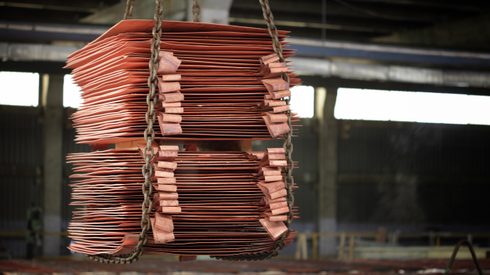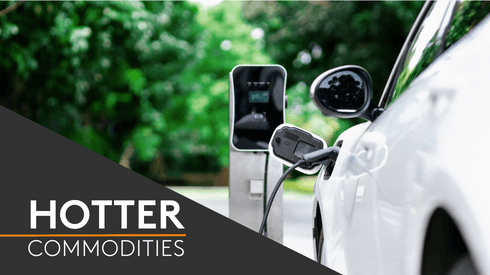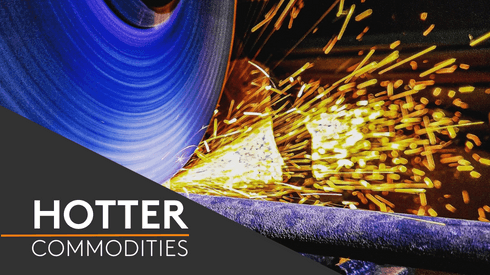In a recent interview with Fastmarkets, Eivind Kallevik, the executive vice president of Hydro Aluminium Metal, said flexibility within Norsk Hydro’s production portfolio at the cast house was central to the company’s ability to adapt to periods of low demand.
“Flexibility for me is important so we can shift products from one segment to another, because there will be a different pace between different cycles. What we had the ability to do in 2023, and which we still do, is maximize the production of products for automotive components,” he added.
The company recently opened a recycling plant in Cassopolis, in the US state of Michigan, and said it plans to grow its automotive customer base at the site over time.
The plant, which is part of the company’s strategy to double its use of post-consumer scrap by 2025, will produce 120,000 tonnes per year of aluminium extrusion ingot and is “sustainability in practice,” Kallevik said.
Cassopolis is producing Norsk Hydro’s Circal product, which contains a minimum of 75% post-consumer scrap and has a verified carbon footprint of 2.3 kilograms of carbon per kg of aluminium. When guaranteeing that there is more than 75% recycled content, the company is referring to aluminium that has reached its end-of-life as a product-in-use and is brought back into the loop.
Qualification trials with the automotive companies are continuing, Kallevik noted.
“Back in 2020, we set a target of doubling use of post-consumer scrap by 2025 – and we have already met that goal. As we look towards 2030, we’re not satisfied to stand still, and we still want to pretty much double again,” he said.
Kallevik told Fastmarkets that growth needs to come in several places, and in various end-use markets.
“Today, we recycle in the foundry alloy market and also in the billet market. We see good opportunities on the greenfield side, the expansion side and potentially on the mergers and acquisitions side,” he said.
The company also plans to explore initiatives such as decarbonizing its cast houses by using green hydrogen, biofuels or direct electrification, and will look into using bio-materials for anode production.
Markets
Kallevik said that while the aluminium market was broadly viewed by analysts to be in surplus, it was not a significant size and varied between regions.
“Europe and the US is still structurally undersupplied, while there are some new, emerging risks popping up,” he said.
“For example, the Israeli-Gaza crisis obviously leads to tensions in the Red Sea and, as a result, more ships going to southern parts of Africa, leading to delays in value chains,” he added.
In China, meanwhile, growth appears to be in the offing, Kallevik said.
“I was in China in October, and the feeling I get – and it’s just a feeling – is that at least people on the ground have some anticipation of growth coming back in 2024,” he noted.
“Also due to domestic political reasons [in China], there needs to be more growth. You see huge numbers of youth unemployment, people to get back into the labour force, and the best way to do that is through growth in the economy,” he added.
Market conditions in Europe meanwhile remain challenging, with restarts of curtailed capacity unlikely in the short-term and demand relatively weak in certain end-use segments like construction, Kallevik said.
High energy costs in Europe this decade have led to the curtailment of as much as 1 million tonnes of aluminium smelter capacity.
“There’s still capacity in Europe, and there is much less to flex on. Many of the remaining smelters have long-term power contracts, so they don’t necessarily feel the same energy cost push as those smelters living on a spot basis do,” Kallevik told Fastmarkets.
“But it’s still challenging for many because demand for aluminium in Europe is quite weak,” he said.
Despite an easing of energy costs, restarts seem unlikely, particularly given aluminium prices and premiums, Kallevik noted.
“My biggest concern is the geopolitical situation – the tensions between the US and China, the tensions in the Middle East, the war by Russia in Ukraine,” he said, adding the impacts on global growth. “Obviously there is very little if I can do about it, other than managing and observing the risks, and planning for the consequences,” he added.
Self-sanctioning of Russian metal by aluminium market participants has led to another important development: the dominance of Russia-origin metal in London Metal Exchange warehouses.
LME data shows Russian stocks accounted for 90% of total aluminium stocks in exchange-approved warehouses at the end of last year.
Kallevik said growth of Russian aluminium in LME warehouses has reduced the relevance of the exchange and made it harder for many players to trade on the LME based on the physical market.
“One of the arguments is whether or not there should be a two-tier pricing system or quotation of Russian versus non-Russian origin metal,” Kallevik told Fastmarkets.
“At least that would give market participants the opportunity, because it would be really hard to buy with the intention to take physical metal from LME warehouses today,” he added.
In Hotter Commodities, special correspondent Andrea Hotter covers some of the biggest stories impacting the natural resources sector. Sign up today to receive Andrea’s content as it is published.






